MEDICAL WORKERS FEEL BURDEN OF SURGE
입력 2022.03.25 (15:27)
수정 2022.03.25 (16:45)
읽어주기 기능은 크롬기반의
브라우저에서만 사용하실 수 있습니다.
[Anchor Lead]
The COVID-19 outbreak continues to surge on and the number of deaths is also spiking but authorities argue the medical capacity is still within a manageable level. However the reality is much more dire as hospital staff, even if they are infected, need to take care of patients. If the situation continues, hospital wards may have to shut down. The medical community and care workers are strongly demanding government measures, saying that every day at work is a battle field.
[Pkg]
[Soundbite] "Guarantee! Guarantee! Fight!"
Workers at medical and care-providing institutions have taken to the streets, waving pickets and holding a press conference. They voice a desperate appeal saying healthcare capacity, which remains the same level as 2 years ago, has reached a limit leading to manpower shortage, as more workers are also testing positive.
[Soundbite] Park Gyeong-deuk(KHWU) : "It’s to the point where manpower is not only short but there are no workers at all now. Hospital wards could be shutting down before long."
The protesters also mentioned aggravating working conditions at hospitals. Doctors and nurses are asked to come out to work even if they test positive using a self-test kit, and due to shorter quarantine, there have been cases where nurses passed out during their shifts and were sent to the emergency room. This was the situation at a senior care facility, as told by onsite officials, earlier this month in mid-March when daily infections were registering in the 500 to 600-thousands. At one municipal nursing home in Seoul, 200 out of 300 patients and 90 out of its 130 care workers contracted the virus. A majority of them, with the exception of a few elderly patients, could not be sent to a hospital. In some cases, even when patients were taken by the ambulance, they had to return because there were no hospitals to accept them.
[Soundbite] Cha Jeong-hwa(Care provider) : "Five workers used to look after 24 elderly patients. This has come down to two. Not to mention dignified care, any ordinary care is simply impossible."
Health workers also mention the grueling conditions, saying they have meals next to garbage piles having no spare time, and eat leftovers from patient meals.
[Soundbite] Jeon Hyeon-wuk(Care provider) : "I had to resign because I had COVID-19. My employer said a care worker cannot get infected."
However authorities maintain the stance that yes there is pressure on the medical response system but the situation is still within manageable levels. But those actually on site dealing with patients say otherwise, calling day-to-day operations nothing less than a battlefield within a war zone. They criticize that the government’s quarantine guidelines are moving backwards.
The COVID-19 outbreak continues to surge on and the number of deaths is also spiking but authorities argue the medical capacity is still within a manageable level. However the reality is much more dire as hospital staff, even if they are infected, need to take care of patients. If the situation continues, hospital wards may have to shut down. The medical community and care workers are strongly demanding government measures, saying that every day at work is a battle field.
[Pkg]
[Soundbite] "Guarantee! Guarantee! Fight!"
Workers at medical and care-providing institutions have taken to the streets, waving pickets and holding a press conference. They voice a desperate appeal saying healthcare capacity, which remains the same level as 2 years ago, has reached a limit leading to manpower shortage, as more workers are also testing positive.
[Soundbite] Park Gyeong-deuk(KHWU) : "It’s to the point where manpower is not only short but there are no workers at all now. Hospital wards could be shutting down before long."
The protesters also mentioned aggravating working conditions at hospitals. Doctors and nurses are asked to come out to work even if they test positive using a self-test kit, and due to shorter quarantine, there have been cases where nurses passed out during their shifts and were sent to the emergency room. This was the situation at a senior care facility, as told by onsite officials, earlier this month in mid-March when daily infections were registering in the 500 to 600-thousands. At one municipal nursing home in Seoul, 200 out of 300 patients and 90 out of its 130 care workers contracted the virus. A majority of them, with the exception of a few elderly patients, could not be sent to a hospital. In some cases, even when patients were taken by the ambulance, they had to return because there were no hospitals to accept them.
[Soundbite] Cha Jeong-hwa(Care provider) : "Five workers used to look after 24 elderly patients. This has come down to two. Not to mention dignified care, any ordinary care is simply impossible."
Health workers also mention the grueling conditions, saying they have meals next to garbage piles having no spare time, and eat leftovers from patient meals.
[Soundbite] Jeon Hyeon-wuk(Care provider) : "I had to resign because I had COVID-19. My employer said a care worker cannot get infected."
However authorities maintain the stance that yes there is pressure on the medical response system but the situation is still within manageable levels. But those actually on site dealing with patients say otherwise, calling day-to-day operations nothing less than a battlefield within a war zone. They criticize that the government’s quarantine guidelines are moving backwards.
■ 제보하기
▷ 카카오톡 : 'KBS제보' 검색, 채널 추가
▷ 전화 : 02-781-1234, 4444
▷ 이메일 : kbs1234@kbs.co.kr
▷ 유튜브, 네이버, 카카오에서도 KBS뉴스를 구독해주세요!
- MEDICAL WORKERS FEEL BURDEN OF SURGE
-
- 입력 2022-03-25 15:26:59
- 수정2022-03-25 16:45:17
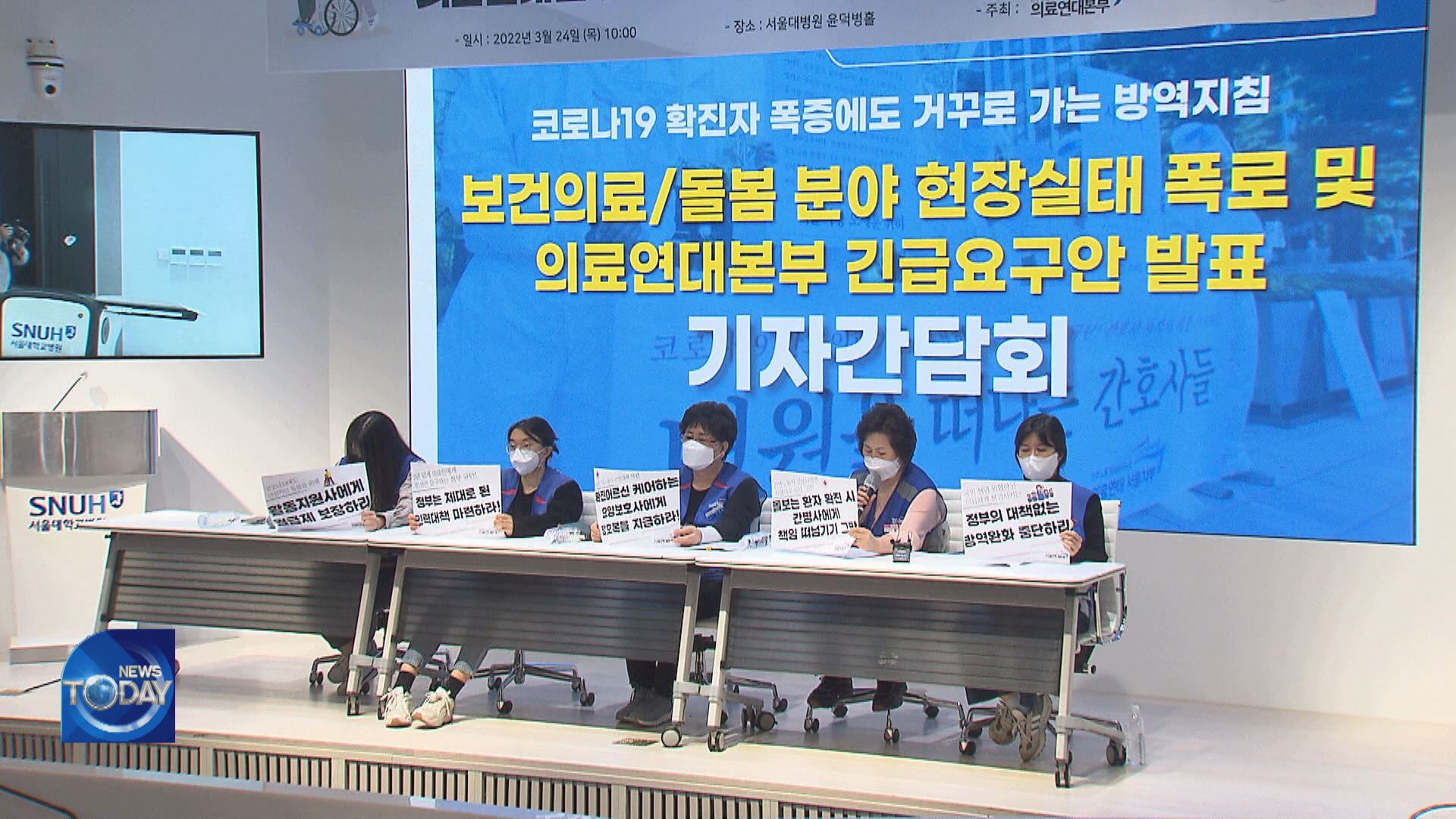
[Anchor Lead]
The COVID-19 outbreak continues to surge on and the number of deaths is also spiking but authorities argue the medical capacity is still within a manageable level. However the reality is much more dire as hospital staff, even if they are infected, need to take care of patients. If the situation continues, hospital wards may have to shut down. The medical community and care workers are strongly demanding government measures, saying that every day at work is a battle field.
[Pkg]
[Soundbite] "Guarantee! Guarantee! Fight!"
Workers at medical and care-providing institutions have taken to the streets, waving pickets and holding a press conference. They voice a desperate appeal saying healthcare capacity, which remains the same level as 2 years ago, has reached a limit leading to manpower shortage, as more workers are also testing positive.
[Soundbite] Park Gyeong-deuk(KHWU) : "It’s to the point where manpower is not only short but there are no workers at all now. Hospital wards could be shutting down before long."
The protesters also mentioned aggravating working conditions at hospitals. Doctors and nurses are asked to come out to work even if they test positive using a self-test kit, and due to shorter quarantine, there have been cases where nurses passed out during their shifts and were sent to the emergency room. This was the situation at a senior care facility, as told by onsite officials, earlier this month in mid-March when daily infections were registering in the 500 to 600-thousands. At one municipal nursing home in Seoul, 200 out of 300 patients and 90 out of its 130 care workers contracted the virus. A majority of them, with the exception of a few elderly patients, could not be sent to a hospital. In some cases, even when patients were taken by the ambulance, they had to return because there were no hospitals to accept them.
[Soundbite] Cha Jeong-hwa(Care provider) : "Five workers used to look after 24 elderly patients. This has come down to two. Not to mention dignified care, any ordinary care is simply impossible."
Health workers also mention the grueling conditions, saying they have meals next to garbage piles having no spare time, and eat leftovers from patient meals.
[Soundbite] Jeon Hyeon-wuk(Care provider) : "I had to resign because I had COVID-19. My employer said a care worker cannot get infected."
However authorities maintain the stance that yes there is pressure on the medical response system but the situation is still within manageable levels. But those actually on site dealing with patients say otherwise, calling day-to-day operations nothing less than a battlefield within a war zone. They criticize that the government’s quarantine guidelines are moving backwards.
The COVID-19 outbreak continues to surge on and the number of deaths is also spiking but authorities argue the medical capacity is still within a manageable level. However the reality is much more dire as hospital staff, even if they are infected, need to take care of patients. If the situation continues, hospital wards may have to shut down. The medical community and care workers are strongly demanding government measures, saying that every day at work is a battle field.
[Pkg]
[Soundbite] "Guarantee! Guarantee! Fight!"
Workers at medical and care-providing institutions have taken to the streets, waving pickets and holding a press conference. They voice a desperate appeal saying healthcare capacity, which remains the same level as 2 years ago, has reached a limit leading to manpower shortage, as more workers are also testing positive.
[Soundbite] Park Gyeong-deuk(KHWU) : "It’s to the point where manpower is not only short but there are no workers at all now. Hospital wards could be shutting down before long."
The protesters also mentioned aggravating working conditions at hospitals. Doctors and nurses are asked to come out to work even if they test positive using a self-test kit, and due to shorter quarantine, there have been cases where nurses passed out during their shifts and were sent to the emergency room. This was the situation at a senior care facility, as told by onsite officials, earlier this month in mid-March when daily infections were registering in the 500 to 600-thousands. At one municipal nursing home in Seoul, 200 out of 300 patients and 90 out of its 130 care workers contracted the virus. A majority of them, with the exception of a few elderly patients, could not be sent to a hospital. In some cases, even when patients were taken by the ambulance, they had to return because there were no hospitals to accept them.
[Soundbite] Cha Jeong-hwa(Care provider) : "Five workers used to look after 24 elderly patients. This has come down to two. Not to mention dignified care, any ordinary care is simply impossible."
Health workers also mention the grueling conditions, saying they have meals next to garbage piles having no spare time, and eat leftovers from patient meals.
[Soundbite] Jeon Hyeon-wuk(Care provider) : "I had to resign because I had COVID-19. My employer said a care worker cannot get infected."
However authorities maintain the stance that yes there is pressure on the medical response system but the situation is still within manageable levels. But those actually on site dealing with patients say otherwise, calling day-to-day operations nothing less than a battlefield within a war zone. They criticize that the government’s quarantine guidelines are moving backwards.
이 기사가 좋으셨다면
-
좋아요
0
-
응원해요
0
-
후속 원해요
0










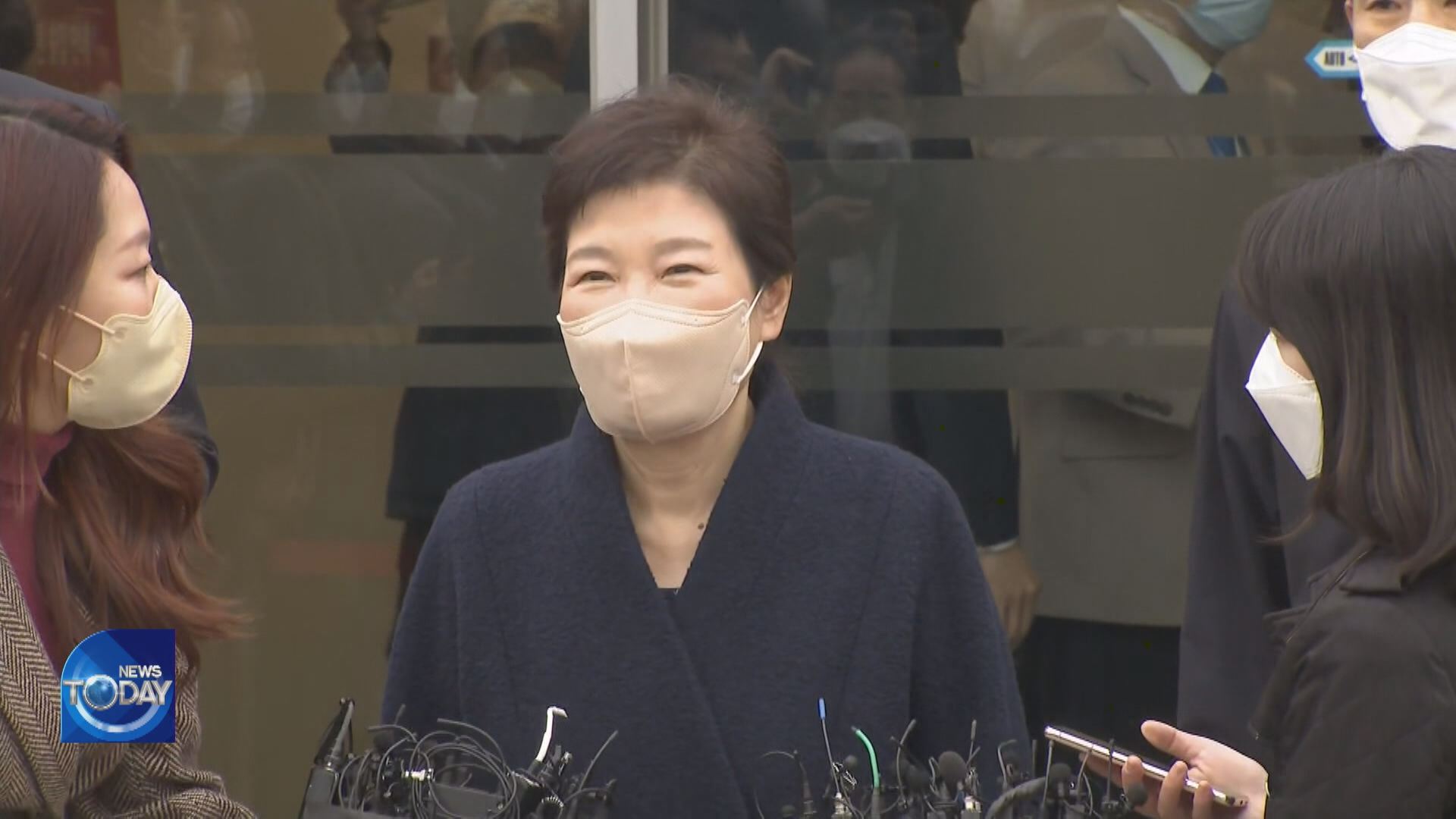

![[영상] 정진우 서울중앙지검장 첫 출근…<br>“신뢰받는 검찰 되도록 노력”](/data/fckeditor/vod/2025/07/04/305901751621912095.png)
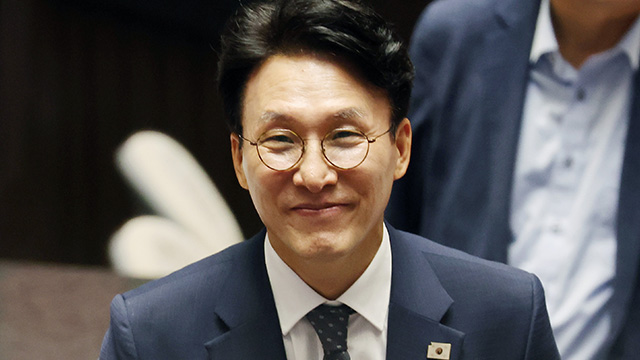
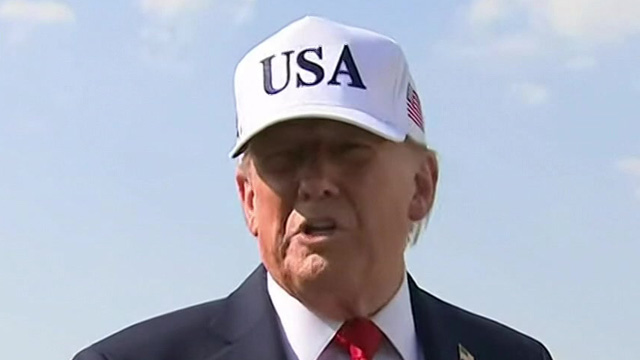
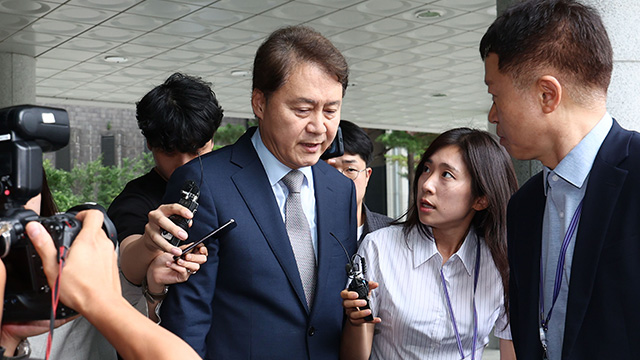

이 기사에 대한 의견을 남겨주세요.